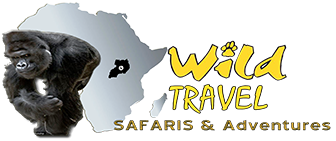Safety Measures to prevent spread of Covid-19 to Wildlife
Safety Measures to prevent spread of Covid-19 to Wildlife as tension continues to grow in the world, everything seem to be paralyzed from businesses and travel. There is so much concern of what will happen to wildlife if this novel coronavirus spreads to them. Different stakeholders are more concerned with the life of the endangered Mountain gorillas that have increased in the past years. The virus seems to spare none if it spreads to wildlife therefore, there is so much concern on going that if travelers from the affected countries come for gorillas safaris, definitely the growing population of mountain gorillas may get affected in the long run.
The governments were quick to respond to this alarm through their governing bodies Uganda wildlife authority in Uganda, Rwanda Development board, Virunga.org and other conservation authorities like Dian Fossey gorilla fund have designed and formulated a number of safety measures that will guide tourists in regards to protect both Human and wildlife against the pandemic Coronavirus.
 Some of the safety measures taken by authorities to protect & prevent spread of Covid-19 to Wildlife include;
Some of the safety measures taken by authorities to protect & prevent spread of Covid-19 to Wildlife include;
The government of Uganda has established complete checkup of every entrant in the country for covid-19 at every border entry point. After the country confirmed a case of coronavirus, the government went ahead and stopped all incoming flights except Cargo in order to monitor the situation. The same situation applies to the neighbor in Rwanda and if one is tested positive for covid-19, the infected is isolated for further monitoring before they fully access the country as well its other resources like wild life.
The government of Uganda restricted travel to and from countries that are already affected by Coronavirus in order to control its importation into the country. The countries were categorized into 3 depending on the severity of the outbreak in such countries.
Category 1: Travelers from countries like China, Belgium, Austria, Italy, South Korea, United States, United Kingdom, Spain, Germany and Malaysia among others have been advised to postpone their travel to Uganda. Those who insist on coming will be subjected to 14 days quarantine at their own cost. This also includes tourists who are intending to visit several wildlife destinations including trekking gorillas. The other countries named in category 3 and 3 were not yet infected however they were all to go through routine screening.
- The government of Uganda through Uganda wildlife authority advised all travelers who have been banned from travelling with already confirmed bookings to postpone their travel up to 2021.
- Primate tourism in regard this includes mountain gorilla tracking, chimpanzee tracking and golden monkey tracking has been suspended until 30th April with hope the situation will be managed.
- All intending trackers will be provided with necessary PPE to avoid passing on any possible infections to the primates.
- All Wildlife authorities and staff have been directed to be vigilant and adhere to the national guidelines, social distancing as well put wash their hands before and after monitoring wildlife as it has been before.
- In Rwanda, all staff working with wildlife at all national parks including rangers, vets and trackers are all tested and given protective gear like gloves for both their protection and that of animals.
- Other measures include limiting the time that both the wildlife staff and the tourists have been spending in the presence of animals. Distance between humans and the animals is also strongly emphasized to limit any chance of virus transmission to the animals
- While in Democratic Republic of Congo, there is Temporary closure of Virunga national park and suspending gorilla tracking safaris until June 2020 and advising the already booked and confirmed trips to postpone as further till June 2021
- Covid-19 is likely to be transmitted faster, therefore the authorities have restricted time and distance staff spends in the presence of the animals after monitoring.
- After checking on all the animals, the staff moves 100 meters away from them to maintain a protection presence.
- All field monitoring staff will be subjected to daily checkup before and after. If anyone is tested positive or with any symptoms of fever or a cold then they will be isolated to seek medical attention.
Other measures include undertaking mandatory and regular hand washing and sanitizing by all staff, placing posters that explain symptoms of COVID-19 and its control measures at several work areas to educated both staff and the community, practicing social distancing therefore Community engagement programs have been suspended to minimize risk of exposure.
In conclusion; the rapid spread of the pandemic corona virus has not only raised tension to human life but also a threat to wildlife, so much research is being done on how curb down the virus but of now the only solution is to bid to the advice from the rightful officials and stop transmitting the virus further to prevent spread of Covid-19 to Wildlife.
